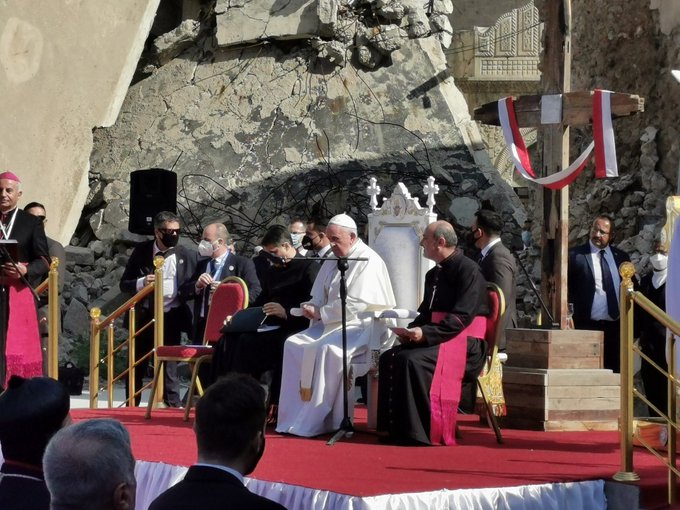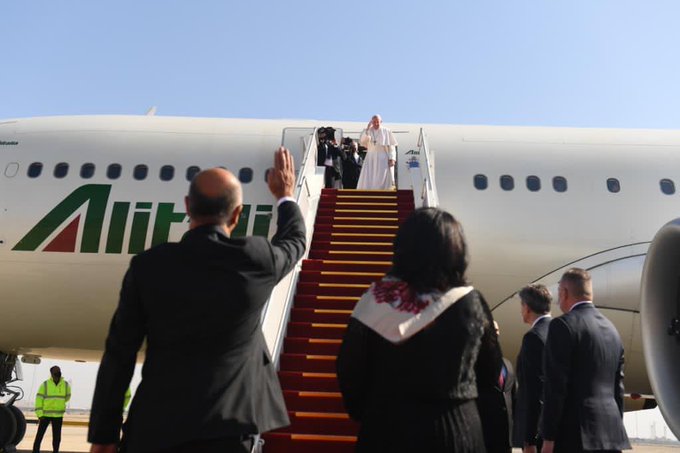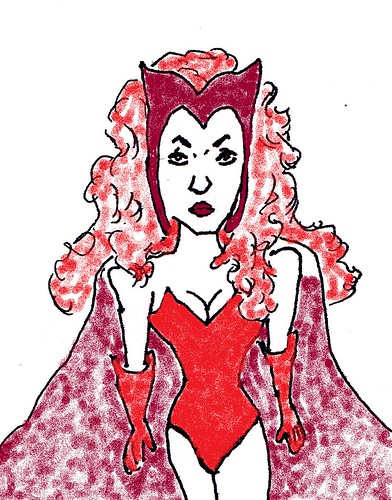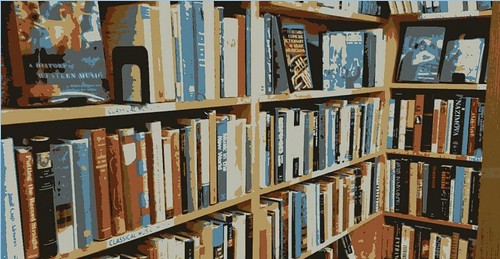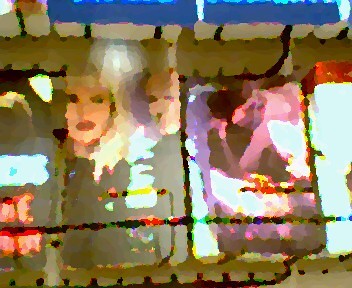The Pope made a historic visit to Iraq. The western press attacked the visit prior to it beginning. Xenophobia informed the US press 'coverage.' Pope Francis went down in history as the first Pope to visit Iraq and we're noting this from THE COMMON ILLS:
Today, Pope Francis concluded his trip to Iraq. Riya Baibhawi (REPUBLCWORLD.COM) explains,
"Pope Francis, who, on March 7, concluded his three-day visit to Iraq,
said that the country would always remain with him. The top pontiff
stopped by the ruins of homes and cathedrals in ISIS destroyed Mosul
before finally attending Mass at the jam-packed Franso Hariri Stadium in
Kurdistan’s Erbil." This was a historic trip, the first visit of a
Pope to Iraq. It was a defining moment for the pope and it was a
defining moment for the press.
The western press
clearly was not up to the job -- a reality made clear by one western
outlet after another -- especially in the US -- carping and and fretting
while ignoring the true intent of the visit. Once Pope Francis landed
in Iraq, western outlets didn't get much better as Martin Chulov (GUARDIAN) made clear, "The pope concluded his two-day trip to Iraq
with two highly symbolic stops in areas [. . .]" Huh? Do they no
longer teach basic math in the United Kingdom? Pope Francis landed in
Iraq on Friday (one day), he continued his visit Saturday (two days) and
he concluded his trip on Sunday (three days). Martin Chulov reduces a
three day visit to Iraq to a "two-day trip." And it's not just his
stupidity but the editors at THE GUARDIAN as well. By contrast, VATICAN
NEWS gets it right even in a headline "Highlights of Pope Francis' third day in Iraq."
The lack of care with basic facts taken by THE GUARDIAN is a telling as
any lengthy report that they could have filed (but didn't). THE GUARDIAN can get that it was a three day trip in a photo caption, at least.
Despite
an underlaying xenophoia to the western coverage ahead of the visit,
Pope Francis made it through Iraq without any attempt being made on his
life. The Iraqi people more than lived up to the spirit of the
pontiff's visit. And the United Nation's News Center explains, "Audrey Azoulay, Director-General of the UN Educational, Scientific and Cultural Organization (UNESCO),
and Noura Al Kaabi, Minister of Culture and Youth of the United Arab
Emirates, welcomed the historic papal visit to Al Tahera Church, one of
the sites of the UNESCO-led Revive the Spirit of Mosul initiative."
The Popes visit, as Philip Pullella and Michael Gregory (REUTERS) note, was about healing and peace. He had already defined himself ahead of the trip as "a pilgrim of peace."Alex Arger (THE DENVER CHANNEL) reports
that Pope Francis spoke of the importance of hope and of it being "more
powerful than hatred and peace more powerful than war." Francesco Bongarra (ARAB NEWS) quotes
Pope Francis declaring in his remarks at the Syriac Catholic al-Tahira
Church in Qaraqosh today, "Even amid the ravages of terrorism and war,
we can see, with the eyes
of faith, the triumph of life over death." SCRIPPS MEDIA notes "he called for unity and forgiveness for Muslim extremists, as he visited several churches destroyed by ISIS." Nicole Winfield and Samya Kullab (AP) observe, "Bells rang out in the town of Qaraqosh as the pope arrived. Speaking to a
packed Church of the Immaculate Conception, Francis said “forgiveness”
is a key word for Christians."
THE NATIONAL's Mina Aldroubi Tweets:
In Mosul, John Bacon (USA TODAY) notes, the Pope declared, "Here in Mosul, the tragic consequences of war and hostility are all too
evident. How cruel it is that this
country, the cradle of civilization, should have been afflicted by so
barbarous a blow, with ancient places of worship destroyed and many
thousands of people -- Muslims, Christians, Yazidis, who were cruelly
eliminated by terrorism, and others -- forcibly displaced or killed." Cindy Wooden (CATHOLIC NEWS SERVICE) quotes
the Pope stating, "If God is the God of life -- for so he is -- then it
is wrong for us to kill our brothers and sisters in his name. If God
is the God of peace -- for so he is -- then it is wrong for us to wage
war in his name. If God is the God of love -- for so he is -- then it is
wrong for us to hate our brothers and sisters." Mosul is the city that
ISIS seized in 2014 and controlled for three years until June of 2017.
Fanar Haddad Tweeted:
Mosul, Rasha al-Aqeedi Tweets
(with photos), is "Where the Iraqi government could not masquerade its
failure, inefficiency, and corruption. 3 years later and Mosul's
historic Old Town remains as it was. The Pope sees it."
Before he began speaking in the KRG area of Iraq today, he first arrived at the airport there. Fazel Hawramy (RUDAW) explains
that those greeting the Pope upon arrival included KRG President
Nechirvan Barzani whom the Pope told, "I am grateful that, despite being
in war, you received the displaced
Christians and other minorities from Mosul, Nineveh Plains, and
Qaraqosh. You opened your arms to Christians. The enemy
came to destroy this country but you served and opened your arms to the
displaced Christians and other groups. War brings destruction, but you
defeated the enemy and reconstructed your country.”
Erbil witnessed the largest turnout for the Pope as over 13,000 turned out in and around the stadium he spoke at. FRANCE 24 explains
it was The Franso Hariri Stadium which was "named after an Iraqi
Christian politician who was assassinated by extremists 20 years ago."
Franso Toma Hariri was a member of the Kudristan Democratic Party who
faced assassination attempts in 1994 and 1997 before being assassinated
February 18, 2001. The stadium is now the official home for Iraq's
national football team. Andrea Tornielli (VATICAN NEWS) notes that Erbil is where many Christians went to flee Mosul when ISIS took over the city. Chris Robertson (SKY NEWS) explains Erbil was the last event of the trip and that the Pope will be back in Rome on Monday. VATICAN NEWS quotes Pope Francis declaring everyone should "work together in unity for a future of peace and
prosperity that leaves no one behind and discriminates against no one." Alice Fordham tells Michel Martin (NPR's ALL THINGS CONSIDERED), "He spoke in Erbil - I saw him this afternoon - about not seeking
revenge. And he said things about not having a narrow idea of community
and faith, but the importance of inclusion, of building an open society.
And I've spoken to several priests here and to local leaders, and they
very much hope that his message will encourage Christians to return to
their villages, to stay in Iraq and to build a diverse Iraqi society."
In Erbil, he delivered the following Homily:
Saint Paul has told us that “Christ is the power and wisdom of God” (1 Cor
1:22-25). Jesus revealed that power and wisdom above all by offering
forgiveness and showing mercy. He chose to do so not by displays of
strength or by speaking to us from on high, in lengthy and learned
discourses. He did so by giving his life on the cross. He revealed his
wisdom and power by showing us, to the very end, the faithfulness of the
Father’s love; the faithfulness of the God of the covenant, who brought
his people forth from slavery and led them on a journey of freedom (cf.
Ex 20:1-2).
How easy it is to fall into the trap of thinking that we have to show
others that we are powerful or wise, into the trap of fashioning false
images of God that can give us security (cf. Ex 20:4-5). Yet the
truth is that all of us need the power and wisdom of God revealed by
Jesus on the cross. On Calvary, he offered to the Father the wounds by
which alone we are healed (cf. 1 Pet 2:24). Here in Iraq, how
many of your brothers and sisters, friends and fellow citizens bear the
wounds of war and violence, wounds both visible and invisible! The
temptation is to react to these and other painful experiences with human
power, human wisdom. Instead, Jesus shows us the way of God, the path
that he took, the path on which he calls us to follow him.
In the Gospel reading we have just heard (Jn 2:13-25), we see
how Jesus drove out from the Temple in Jerusalem the moneychangers and
all the buyers and sellers. Why did Jesus do something this forceful and
provocative? He did it because the Father sent him to cleanse the
temple: not only the Temple of stone, but above all the temple of our
heart. Jesus could not tolerate his Father’s house becoming a
marketplace (cf. Jn 2:16); neither does he want our hearts to be
places of turmoil, disorder and confusion. Our heart must be cleansed,
put in order and purified. Of what? Of the falsehoods that stain it,
from hypocritical duplicity. All of us have these. They are diseases
that harm the heart, soil our lives and make them insincere. We need to
be cleansed of the deceptive securities that would barter our faith in
God with passing things, with temporary advantages. We need the baneful
temptations of power and money to be swept from our hearts and from the
Church. To cleanse our hearts, we need to dirty our hands, to feel
accountable and not to simply look on as our brothers and sisters are
suffering. How do we purify our hearts? By our own efforts, we cannot;
we need Jesus. He has the power to conquer our evils, to heal our
diseases, to rebuild the temple of our heart.
To show this, and as a sign of his authority, Jesus goes on to say:
“Destroy this temple, and in three days I will raise it up” (v. 19).
Jesus Christ, he alone, can cleanse us of the works of evil. Jesus, who
died and rose! Jesus, the Lord! Dear brothers and sisters, God does not
let us die in our sins. Even when we turn our backs on him, he never
leaves us to our own devices. He seeks us out, runs after us, to call us
to repentance and to cleanse us of our sins. “As I live, says the Lord,
I have no pleasure in the death of the wicked, but that the wicked turn
from his way and live” (Ezek 33:11). The Lord wants us to be saved and to become living temples of his love, in fraternity, in service, in mercy.
Jesus not only cleanses us of our sins, but gives us a share in his
own power and wisdom. He liberates us from the narrow and divisive
notions of family, faith and community that divide, oppose and exclude,
so that we can build a Church and a society open to everyone and
concerned for our brothers and sisters in greatest need. At the same
time, he strengthens us to resist the temptation to seek revenge, which
only plunges us into a spiral of endless retaliation. In the power of
the Holy Spirit, he sends us forth, not as proselytizers, but as
missionary disciples, men and women called to testify to the
life-changing power of the Gospel. The risen Lord makes us instruments
of God’s mercy and peace, patient and courageous artisans of a new
social order. In this way, by the power of Christ and the Holy Spirit,
the prophetic words of the Apostle Paul to the Corinthians are
fulfilled: “God’s foolishness is wiser than human wisdom, and God’s
wisdom is stronger than human strength” (1 Cor 1:25). Christian
communities made up of simple and lowly people become a sign of the
coming of his kingdom, a kingdom of love, justice and peace.
“Destroy this temple, and in three days I will raise it up” (Jn 2:19).
Jesus was speaking about the temple of his body, and about the Church
as well. The Lord promises us that, by the power of the resurrection, he
can raise us, and our communities, from the ruins left by injustice,
division and hatred. That is the promise we celebrate in this
Eucharist. With the eyes of faith, we recognize the presence of the
crucified and risen Lord in our midst. And we learn to embrace his
liberating wisdom, to rest in his wounds, and to find healing and
strength to serve the coming of his kingdom in our world. By his wounds,
we have been healed (cf. 1 Pet 2:24). In those wounds, dear
brothers and sisters, we find the balm of his merciful love. For he,
like the Good Samaritan of humanity, wants to anoint every hurt, to heal
every painful memory and to inspire a future of peace and fraternity in
this land.
The Church in Iraq, by God’s grace, is already doing much to proclaim
this wonderful wisdom of the cross by spreading Christ’s mercy and
forgiveness, particularly towards those in greatest need. Even amid
great poverty and difficulty, many of you have generously offered
concrete help and solidarity to the poor and suffering. That is one of
the reasons that led me to come as a pilgrim in your midst, to thank you
and to confirm you in your faith and witness. Today, I can see at first
hand that the Church in Iraq is alive, that Christ is alive and at work
in this, his holy and faithful people.
Dear brothers and sisters, I
commend you, your families and your communities, to the maternal
protection of the Virgin Mary, who was united to her Son in his passion
and death, and who shared in the joy of his resurrection. May she
intercede for us and lead us to
Christ, the power and wisdom of God.
Greeting of His Holiness Pope Francis at the conclusion of Mass in Erbil
I greet with affection His Holiness Mar Gewargis III,
Catholicos-Patriarch of the Assyrian Church of the East, who resides in
this city and honours us with his presence. Thank you, dear Brother!
Together with him, I embrace the Christians of the various
denominations: so many of them have shed their blood in this land! Yet
our martyrs shine together like stars in the same sky! From there they
call us to walk together, without hesitation, towards the fullness of
unity.
At the conclusion of this celebration, I thank Archbishop Bashar
Matti Warda as well as Bishop Nizar Semaan and my other brother Bishops,
who worked so hard for this Journey. I am grateful to all of you who
prepared and accompanied my visit with prayer and welcomed me so warmly.
In a special way, I greet the beloved Kurdish people. I am particularly
grateful to the government and the civil authorities for their
indispensable contribution, and I thank all those who in various ways
cooperated in the organization of the entire Journey in Iraq, the Iraqi
authorities – all of them – and the many volunteers. My thanks to all of
you!
In my time among you, I have heard voices of sorrow and loss, but
also voices of hope and consolation. This was due in large part to that
tireless charitable outreach made possible by the religious institutions
of every confession, your local Churches and the various charitable
organizations assisting the people of this country in the work of
rebuilding and social rebirth. In a particular way, I thank the members
of ROACO and the agencies they represent.
Now the time draws near for my return to Rome. Yet Iraq will always
remain with me, in my heart. I ask all of you, dear brothers and
sisters, to work together in unity for a future of peace and prosperity
that leaves no one behind and discriminates against no one. I assure you
of my prayers for this beloved country. In a particular way, I pray
that the members of the various religious communities, together with all
men and women of good will, may work together to forge bonds of
fraternity and solidarity in the service of the good and of peace salam, salam, salam! Sukrán [Thank you]! May God bless all! May God bless Iraq! Allah ma’akum! [God be with you!]
Chris Livesay (CBS NEWS) speaks with an unnamed 24-year-old woman who attended the Erbil event and tells the reporter, "We feel safe now." Christopher Wells (VATICAN NEWS) reports:
At the conclusion of the Eucharistic liturgy, Pope Francis blessed a
statue of the Virgin Mary that had been vandalized by Islamic State
militants. The head and hands of the statue had been cut off, but the
head was later recovered and reattached.
Father Samir Sheer, director of Radio Mariam in Erbil, explained that
the statue originally came from the Christian village of Karamles.
"After the blessing," he said, "the statue will return to the Nineveh
Plain. The hope of local Christians is that Our Lady will soon return to
embrace her children in Karamles."
Iraq's President Barham Salih Tweeted:

